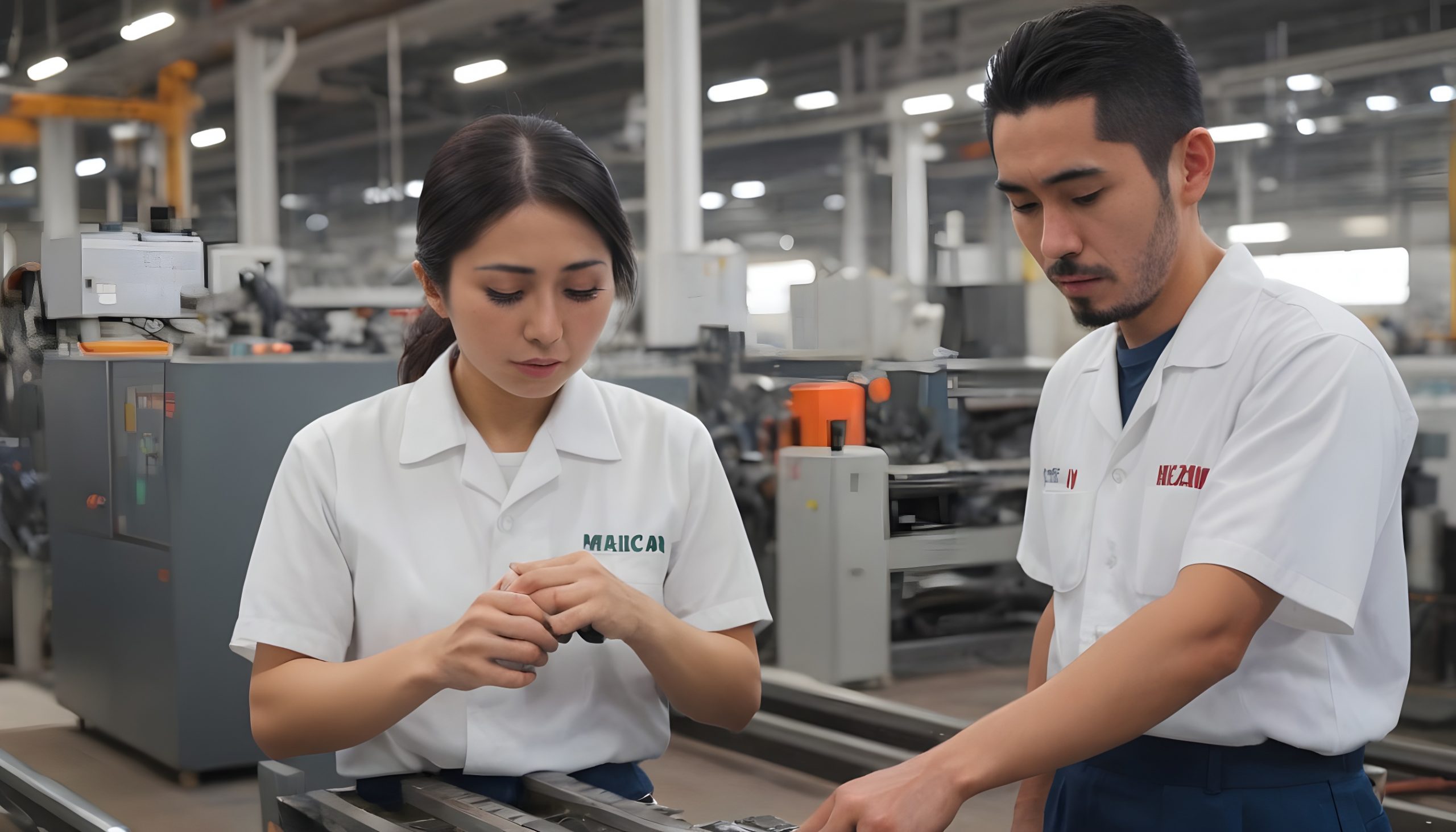
In today’s globalized business world, understanding cultural differences in work practices is crucial for success. Two cultures that stand out for their uniqueness are Japanese and Mexican labor cultures. Below, we will explore the differences and similarities between the two and how an entrepreneur could benefit from implementing Japanese work culture in Mexican companies.
Similarities between Japanese and Mexican labor cultures
Both cultures value courtesy and respect in the workplace. In Japan, this is manifested through formal greetings and bowing, while in Mexico, it is reflected in friendly and respectful interactions among colleagues and superiors. Additionally, in both cultures, building strong personal relationships is crucial for work collaboration.
Japanese and Mexican labor cultures share fundamental similarities despite their distinctive cultural differences. Both cultures value the importance of interpersonal relationships in the workplace, courtesy, and respect towards coworkers and superiors. Additionally, both cultures have a strong national identity rooted in their respective histories and traditions, influencing how they conduct themselves at work.
A key similarity between Japanese and Mexican labor cultures is their focus on the importance of family. In Mexico, family is a central part of life, and family relationships greatly influence personal and professional decisions. Similarly, in Japan, there is a strong emphasis on work-life balance, and it is considered important to dedicate time to family and personal relationships outside of work.
Another notable similarity is the importance both cultures place on loyalty and dedication in work. Both in Japan and Mexico, loyal and committed employees are valued, and their contribution to the company’s success is recognized.
Furthermore, both cultures place importance on teamwork and collaboration. In Japan, there is a concept known as “wa,” which refers to harmony and cooperation in teamwork, while in Mexico, collaboration and mutual support among colleagues are also valued.
Differences between Japanese and Mexican labor cultures
One of the main differences lies in communication. While in Japan, indirect and subtle communication is preferred, in Mexico, it is more direct and straightforward. This can lead to misunderstandings and conflicts if not properly understood.
Additionally, in Japanese work culture, there is a strong hierarchy and emphasis on teamwork and consensus-building. In contrast, in Mexico, while hierarchies also exist, decision-making can be more individualistic and less consensus-oriented.
The differences in Japanese and Mexican labor cultures reflect the countries’ different traditions, values, and social organization. These differences can impact how work relationships are conducted, communication at work, and the perception of authority and hierarchy in the workplace.
One of the most prominent differences between Japanese and Mexican labor cultures is how authority and hierarchy are perceived at work. In Japan, there is a strict hierarchy where employees are expected to respect and follow orders from their superiors without questioning them. This culture of respect for authority can lead to more indirect communication and centralized decision-making. In contrast, in Mexico, while respect for authority is also valued, communication tends to be more direct, and employees may feel more comfortable expressing their opinions and questioning their superiors’ decisions.
Another significant difference is how time and punctuality are perceived at work. In Japan, punctuality is crucial, and being late for a meeting or work is considered disrespectful. On the other hand, in Mexico, while punctuality is also valued, the perception of time can be more flexible, and meetings may start with some delay without it being considered inappropriate.
In terms of work style, Japanese labor culture tends to value teamwork and collaboration to achieve common goals, while in Mexico, while collaboration is also valued, there may be a greater emphasis on individual initiative and competition.
Benefits of implementing Japanese work culture in Mexican companies
By attempting to implement Japanese work culture in Mexican companies, an entrepreneur could obtain several benefits. For example, by adopting punctuality and formality in meetings, efficiency and productivity in the company could be improved. Additionally, by fostering a work environment based on respect and courtesy, employee morale and satisfaction could be improved, leading to greater talent retention.
Another benefit would be the adoption of teamwork and consensus-building practices. This could lead to more robust decision-making and greater cohesion among team members.
Implementation of lean operations in Mexico
The implementation of lean operations, characterized by efficiency and waste minimization, can face challenges in Mexican companies due to cultural and structural differences compared to Japanese companies.
As I mentioned before, in Japan, the work culture is rooted in teamwork, collaboration, and dedication to work, which can facilitate the implementation of lean operations with few employees. Additionally, Japanese culture values efficiency and continuous improvement, which promotes the adoption of practices such as Just-in-Time and the identification and elimination of waste.
In contrast, in Mexico, the work culture may be different, with a focus on formality in labor relations, greater hierarchy in decision-making, and less flexibility in job roles. This can hinder the implementation of lean operations, as it may require changes in organizational structure, corporate culture, and the way work and efficiency are perceived. Additionally, in Mexico, the culture of skills development is not deeply rooted, which means that many Mexicans feel comfortable with their current knowledge, even when it is already outdated or insufficient for new business requirements.
To adapt Mexican culture and facilitate the implementation of lean operations, it is important to consider the following:
- Cultural change: Promote a culture of continuous improvement and efficiency in the company, encouraging active participation of employees in the identification and elimination of waste.
- Training and development: Provide training and development to employees to understand the principles of lean operations and apply them in their daily work.
- Flexibility and adaptability: Promote flexibility and adaptability in organizational structure and job roles to allow the implementation of more efficient practices and the elimination of non-value-added activities.
- Participative leadership: Promote participative leadership that encourages collaboration and employee participation in decision-making and implementation of improvements.
- Recognition and reward: Recognize and reward employees for their contribution to continuous improvement and efficiency at work, thus fostering a culture of excellence and commitment to efficiency.
While there are significant differences between Japanese and Mexican labor cultures, there are also similarities and opportunities for mutual learning and growth. By adopting the best practices of both cultures, companies can improve their efficiency, productivity, and work environment, allowing them to compete more effectively in the global market.
“Among individuals, as among nations, respect for the rights of others is peace.”
Benito Juárez –
#ForeignerWorkMX #CulturalClash #HarmonyInDiversity #JapaneseWorkCulture #MexicanWorkCulture #GlobalWorkplace #CulturalUnderstanding #CrossCulturalComparison #WorkEnvironment #CulturalHarmony #CulturalDiversity




